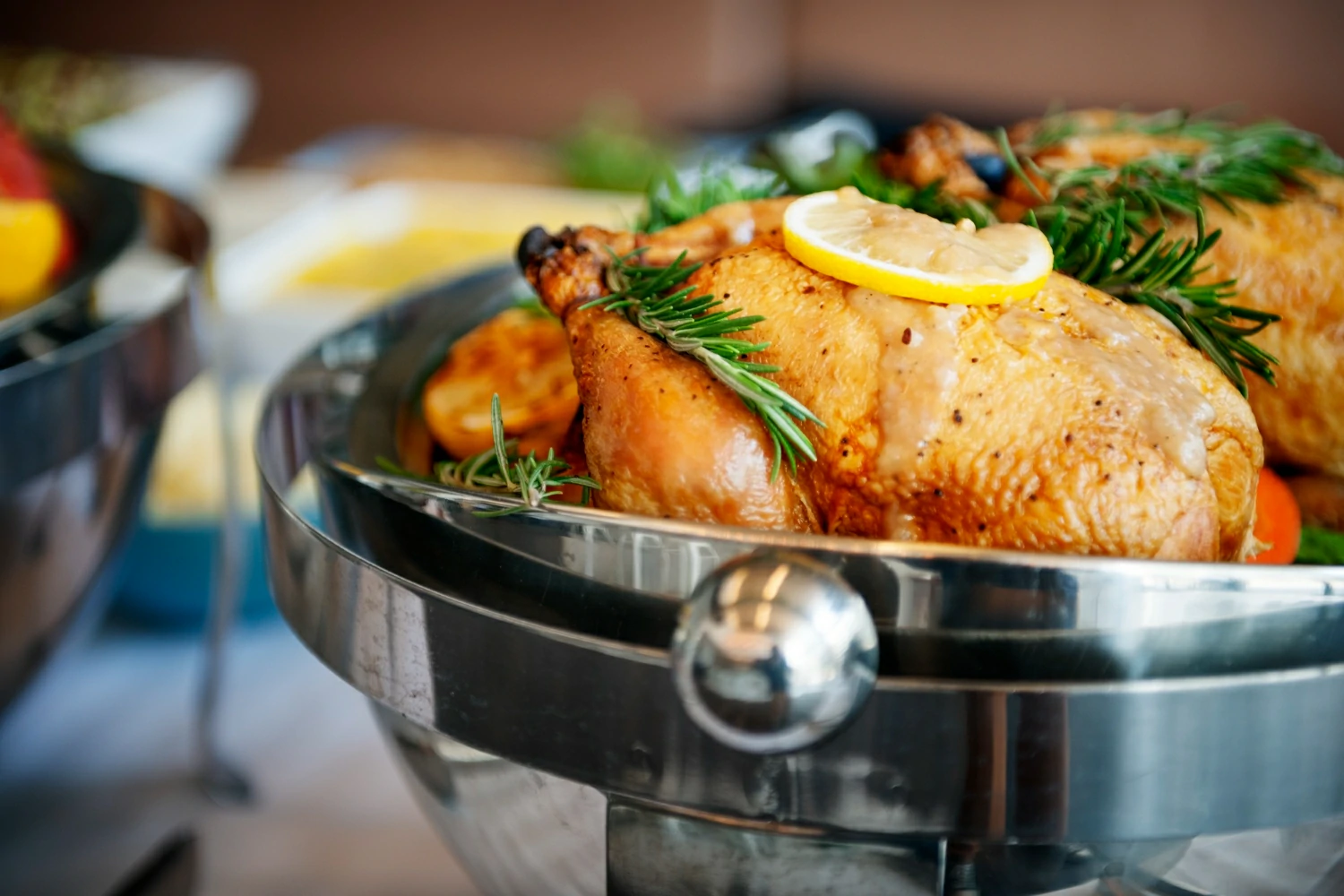How much is food in the Cancun Hotel Zone? Answer is – Food prices in the Cancun Hotel Zone can vary widely. Luxury restaurants and hotel eateries tend to be the most expensive, while budget-friendly options exist in the form of street vendors, smaller local restaurants, and grocery stores. Expect to spend more on food within the Hotel Zone than in downtown Cancun, where you’ll find plenty of authentic and more affordable Mexican cuisine.
Summary
- Food costs in the Cancun Hotel Zone are higher than in downtown Cancun.
- A wide variety of dining options exist, from luxury restaurants to affordable local spots.
- All-inclusive resorts can be a cost-effective option if you plan to eat and drink mostly on property.
- Grocery shopping and preparing some meals can save money.
- Tipping is expected and adds to your overall food costs.
How Much Does Food Cost in the Cancun Hotel Zone?

The Cancun Hotel Zone is a culinary melting pot, reflecting its status as a top-tier international tourist destination. You’ll find everything from high-end restaurants serving gourmet cuisine to vibrant street food stalls where you can savor authentic Mexican flavors. While known for its beautiful beaches and luxurious resorts, it’s important to understand that the Hotel Zone caters primarily to tourists, and this impacts the cost of food in the area.
Overview of Cancun Hotel Zone Food Scene
The Hotel Zone boasts an incredible variety of restaurants. You can find cuisine from all over the world, including Mexican, Italian, Japanese, Mediterranean, and more. This caters to the diverse tastes of travelers but be prepared for some menu items to be adapted for an international palate.
Upscale restaurants with ocean views and elegant ambiance sit alongside family-friendly eateries, lively sports bars, and quick-service spots. The variety means you can tailor your dining experiences to suit your mood and budget.
Many visitors to the Hotel Zone stay in all-inclusive resorts. This impacts the dining scene, with a greater emphasis on restaurants located within hotel properties that cater to convenience over absolute authenticity.
Factors Affecting Food Prices in the Area
Location: As with most tourist destinations, restaurants within the Hotel Zone tend to have higher prices than establishments located elsewhere in Cancun, such as downtown. This is due to factors like higher rents and operating costs.
Imported Goods: Many restaurants, especially those specializing in cuisines other than Mexican, rely on imported ingredients. This drives up the cost of dishes compared to those using primarily locally-sourced items.
Target Market: The Hotel Zone primarily caters to tourists with a certain level of spending power in mind. As such, food prices generally reflect the expectations of international travelers.
Ambiance and Service: Restaurants that offer stunning views, live music, or particularly attentive service will naturally factor these elements into their pricing.
How Much Does Food Cost in the Cancun Hotel Zone?

1. Restaurant Prices
The cost of dining in the Cancun Hotel Zone depends heavily on the type of restaurant you choose. Here’s a general categorization with average price ranges to help you budget:
Types of Restaurants
Luxury
These fine-dining establishments prioritize exquisite cuisine, elegant settings, and impeccable service. They often feature tasting menus, extensive wine lists, and breathtaking ocean views.
Expect to pay upwards of $75 USD per person for a multi-course meal with drinks. Some renowned examples in the Hotel Zone include Harry’s Prime Steakhouse & Raw Bar, Puerto Madero, and Rosa Negra.
Casual
This broad category includes everything from family-friendly restaurants and themed eateries to lively sports bars. You’ll find a mix of Mexican and international cuisines at varying price points.
A meal with drinks at a casual restaurant can range from $25-$50 USD per person. Consider places like Bubba Gump Shrimp Co., Señor Frog’s, or Carlos ‘n Charlie’s.
Local
While less common directly within the Hotel Zone, venturing slightly outside its boundaries will reveal more authentic and affordable Mexican restaurants.
These places are less focused on ambiance and more on delicious, home-style food. Look for small eateries with Spanish-only menus as a sign of authenticity. Meals at such places can range from $10- $20 USD per person.
Average Meal Costs per Person
It’s important to note that prices can vary greatly depending on your specific choices. Here’s a general guideline:
- Breakfast: $10 – $25 USD (continental breakfasts at all-inclusive resorts can be lower, while elaborate brunches might be higher)
- Lunch: $15 – $35 USD
- Dinner: $25 – $75+ USD (can be significantly higher at fine-dining restaurants)
Grocery Stores and Self-Catering
If you want to offset the cost of dining out consistently in the Hotel Zone, grocery shopping and preparing some of your own meals is a smart strategy.
1. Major Grocery Stores
Chedraui: This popular Mexican supermarket chain has several locations within and just outside the Cancun Hotel Zone. Expect a wide selection of fresh produce, meats, snacks, drinks, and imported items.
Walmart: You’ll likely find a Walmart near the Hotel Zone offering familiar products and groceries, including a good selection of pantry staples and snacks.
Soriana: Another Mexican supermarket chain with a similar selection to Chedraui.
Smaller Convenience Stores: The Hotel Zone has numerous smaller stores (like OXXO) that are great for picking up essentials, drinks, and quick snacks. However, these will be pricier than the larger supermarkets.
2. Price Comparison to Restaurants
Grocery shopping is almost always going to be significantly cheaper than eating all your meals at restaurants in the Hotel Zone.
The cost savings increase if you’re preparing simple meals like breakfast, sandwiches, salads, or pasta dishes.
However, it’s important to factor in the cost of items like condiments and spices that you might need to purchase initially, especially if you’re only cooking for a few days.
3. Tips for Saving Money by Cooking Some Meals
Plan Before You Go: Make a list of meals you’d be comfortable preparing with limited kitchen equipment. This will prevent impulse purchases at the store.
Focus on Local Ingredients: Fresh fruits, vegetables, seafood, and tortillas at Mexican grocery stores will be cheaper and tastier than most imported items.
Snacks and Drinks: Stocking up on drinks, snacks, and breakfast items will save you from paying inflated prices at hotel shops or beach vendors.
Consider Your Accommodations: If you don’t have a full kitchen, you might need to get creative with simple recipes requiring minimal appliances.
Sofia Herrera
“Grocery stores, especially outside the tourist center, will connect you to the real flavors of Mexico at a fraction of the cost of restaurants. Don’t be afraid to try new fruits or simple local dishes!” – Sofia Herrera, Cancun food blogger.
Street Food and Budget Eats

While the Hotel Zone focuses on a more upscale dining experience, delicious and budget-friendly food can still be found both within its boundaries and nearby. Street food is a fantastic way to experience authentic Mexican flavors without breaking the bank.
1. Where to Find Affordable Options
Just Outside the Hotel Zone: The further you’re willing to venture from the main tourist strip, the more affordable the food becomes. Within the Hotel Zone, look for smaller, inconspicuous restaurants on side streets, as they likely have lower prices than those with beachfront views.
Downtown Cancun: The heart of Cancun is a treasure trove of local eateries and bustling markets. Here, you’ll find a fantastic variety of authentic and delicious options significantly cheaper than in the Hotel Zone. Look for the famous Parque Las Palapas for a fantastic selection of food vendors.
Local Markets: Markets such as Mercado 23 and Mercado 28 offer incredible experiences and some ready-to-eat food alongside fresh produce and souvenirs. Be prepared to bargain at the markets!
2. Types of Street Food Available
Tacos: Arguably the king of Mexican street food, you’ll find countless taco stands offering an array of fillings like al pastor (marinated pork), carnitas (slow-cooked pork), fish, chicken, and vegetarian options.
Tortas: Hearty Mexican sandwiches on crusty bread packed with meat, cheese, beans, and fresh vegetables.
Tamales: Steamed bundles of corn dough filled with savory or sweet fillings, wrapped in corn husks or banana leaves.
Elote and Esquites: Grilled corn on the cob slathered with delicious toppings (esquites are like corn in a cup).
Marquesitas: Crispy rolled crepes filled with sweet or savory combinations.
Fresh Fruit and Aguas Frescas: Vendors selling colorful fresh-cut fruits and refreshing fruit-based drinks are a delicious way to beat the heat.
3. Safety Considerations
Choose Busy Stands: Popularity is a good indicator of both freshness and taste. Look for stalls with a line of locals.
Eat Cooked Food: While fresh fruit is generally okay, opt for cooked food from vendors to be extra cautious.
Watch It Being Prepared: Observe how the food is handled to ensure cleanliness.
Bring Cash: Most vendors will only accept Mexican pesos.
Go Easy on the Spice: Ask for milder versions or add salsas yourself to control the heat level.
Alcoholic Beverage Costs
Alcohol prices in the Cancun Hotel Zone can add a significant amount to your dining expenses. Expect cocktails and drinks at bars and restaurants to be much pricier than what you might be accustomed to at home.
1. Bar and Restaurant Prices
Beer: Domestic beers like Corona, Modelo, and Dos Equis will generally be the most affordable. Expect to pay around $4-$7 USD for a bottle or draft beer at restaurants within the Hotel Zone.
Cocktails: Mixed drinks and cocktails range considerably in price, depending on the ingredients and location. Simpler cocktails can start at around $8-$10 USD, while more elaborate or premium cocktails at upscale locations can be $15 USD or more.
Wine: Prices for wine by the glass or bottle vary wildly based on quality. A glass might start around $8-$10 USD but expect to pay much more for higher-end options. Bottles of wine will have an even wider price range.
2. Duty-Free and Liquor Store Options
Duty-Free at the Airport: Upon arrival at Cancun International Airport, look for the duty-free shops after you clear customs. You can often find decent deals on bottles of liquor to take to your accommodations.
Liquor Stores in Cancun: There are liquor stores located within and near the Hotel Zone offering a variety of spirits. Buying at a store and enjoying drinks in your hotel room or condo with mixers from a grocery store can be more budget-friendly than consistently ordering drinks at bars and restaurants.
All-Inclusive Resorts

All-inclusive resorts offer a package deal where most of your food, drinks (alcoholic and non-alcoholic), and some activities are included in the upfront price you pay. This can streamline your budgeting, but it’s crucial to weigh the pros and cons.
Pros
- Convenience: All meals, drinks, and snacks are easily accessible on-site, minimizing the need to venture out or plan your itinerary around where to eat.
- No Surprises: Your food and drink costs are mostly locked in upfront, offering peace of mind for budgeting and avoiding unexpected expenses.
- Variety: Most resorts boast a selection of restaurants and bars, offering cuisines from around the world and catering to different dietary preferences.
- Kid-Friendly: Many all-inclusive resorts cater to families, and fuss-free meals can be a major plus when dining with kids.
Cons
- Higher Upfront Cost: All-inclusive packages are usually more expensive than booking your hotel separately. It’s essential to calculate if you’ll break even.
- Limited Exploration: All-inclusives can discourage venturing outside the resort for local food experiences, diminishing your cultural immersion.
- Varying Food Quality: While variety exists, the quality at all-inclusive resorts can range from average buffet-style to high-end, depending on the resort’s price point.
- Potential for Waste: If you don’t eat or drink large amounts, you might not fully utilize your all-inclusive benefits.
When All-Inclusive Makes Sense Financially
If you plan on enjoying multiple alcoholic beverages per day, an all-inclusive can offset the high costs of cocktails and drinks at Hotel Zone bars and restaurants.
For families, the convenience factor and included meals for kids can make all-inclusives financially sound.
If you prefer predictability and don’t plan on venturing out often to try unique local cuisine, an all-inclusive might suit your preferences.
High-end all-inclusive resorts may offer gourmet cuisine experiences that rival top restaurants in the area while remaining cost-effective if you intend to utilize all the amenities.
Additional Factors Affecting Food Cost
1. Tipping Practices in Cancun
Understanding tipping customs is important for budgeting and ensuring you’re showing adequate appreciation for service.
- Restaurants: At restaurants in the Hotel Zone, a tip of 10-15% is customary. Some places may automatically add a service charge to your bill, so check it carefully. If service was exceptional, feel free to tip a bit more.
- Bars: For bartenders, tipping $1-2 USD per drink is appropriate, depending on the complexity of the drink.
- Street Food Vendors: While tipping isn’t strictly expected at street food stands, rounding up your bill or leaving a few coins for excellent food or service is always appreciated.
- All-Inclusive Resorts: Policies vary. Some resorts include gratuity in the upfront price, while others encourage tipping for staff providing exceptional service. Clarify with the resort upon arrival.
2. Seasonal Variations in Price
Cancun sees an influx of tourists during its peak seasons, which affects prices:
- High Season (December-April): Expect the highest prices for food and accommodations during this time, especially around major holidays like Christmas and spring break.
- Shoulder Season (May – June, September – November): Prices tend to be slightly lower than during peak season, making these periods a balance of good weather and affordability.
- Low Season (July – August): The hottest and often rainiest months sometimes offer deals, but be aware of the possibility of hurricanes and some restaurant closures.
3. Exchange Rates
While US dollars are sometimes accepted, having Mexican pesos on hand is best. Pay attention to the current exchange rates to ensure you’re getting a fair price, especially at smaller establishments or markets.
- ATMs: Withdrawing local currency from ATMs is usually a good idea. Check with your bank about foreign transaction fees.
- Money Exchange Bureaus: You’ll find them at the airport and throughout the Hotel Zone. Shop around for the best rates.
- Credit Cards: Widely accepted, but some vendors might add surcharge fees. Inform your credit card company of your travel plans to avoid fraud blocks.
Roberto Sanchez Local Expert
“Learning a few basic Spanish phrases like numbers and food names helps a lot, especially when negotiating at markets or verifying your bill.” – Roberto Sanchez, Cancun Tour Guide.
Tips for Saving Money on Food in the Cancun Hotel Zone

1. Research Restaurants Before Your Trip
Don’t wait until you’re hungry and wandering the Hotel Zone to decide where to eat. Look up restaurants online beforehand, check their menus, and compare prices. This helps you avoid overpriced tourist traps and set a realistic dining budget. Helpful resources include:
- Restaurant Websites: Many places have websites where you can find menus and prices.
- Travel Blogs and Review Sites: Websites like TripAdvisor and Yelp feature reviews and price indicators for restaurants.
2. Take Advantage of Lunch Specials and Happy Hours
- Lunchtime Savings: Many restaurants within the Hotel Zone offer special lunch menus with lower prices than their dinner counterparts. This is a fantastic way to experience nicer restaurants at a more budget-friendly price point.
- Happy Hour Deals: Bars throughout the Hotel Zone offer happy hour specials, often with discounts on drinks and appetizers. This can be a fun and economical way to sample a couple of places each evening before dinner.
3. Explore Outside the Hotel Zone for More Affordable Options
Stepping outside the main tourist area almost always translates to better prices and more authentic Mexican food. Downtown Cancun offers a wealth of dining options for all budgets. Consider taking the bus or a taxi for short trips outside the Hotel Zone. Some local favorites include:
- Parque Las Palapas: A bustling park in downtown Cancun. Surrounded by fantastic food stalls with affordable and delicious local fare.
- Mercado 23 and Mercado 28: Bustling markets selling souvenirs, produce and offer some prepared food options as well.
4. Consider Packing Snacks and Drinks
Stocking up on non-perishable snacks and drinks for your hotel room helps offset costs:
- From Home: Pack things like granola bars, nuts, and dried fruit if you have space in your luggage.
- Local Grocery Stores: Larger grocery stores in the area will have a great selection of snacks and drinks. This can save a lot compared to mini-marts or hotel shops.
5. Learn Basic Spanish Phrases for Ordering Food
Knowing some basic food vocabulary and phrases will help with ordering, especially at street stalls or local eateries. Here are some useful ones:
- ¿Cuánto cuesta? (How much is it?)
- La cuenta, por favor (The check, please)
- Con carne/sin carne (With meat/without meat)
- Para llevar (To go)
Conclusion
Dining in the Cancun Hotel Zone offers a vast range of culinary experiences, from the convenience of all-inclusive resorts to hidden gems in downtown Cancun. While the prime location and emphasis on tourism create a pricier atmosphere, a touch of planning and strategic choices can make your culinary adventures both fulfilling and budget-friendly.
Remember these key takeaways:
- The Hotel Zone boasts cuisines from all over the world but exploring a little further will reward you with affordable local eats and a more authentic taste of the Yucatan.
- Happy hours, lunch specials, and grocery store snacks can help keep your food budget in check.
- They can be cost-effective but carefully consider your own eating and drinking habits, plus your desire to explore outside the resort, before booking.
- Show your appreciation with appropriate tips and learn the local customs for the best experience.
- A willingness to venture off the beaten path and try new things will lead to the tastiest and most budget-friendly culinary discoveries.
FAQs
Is Cancun expensive for food?
Prices within the Hotel Zone tend to be higher than in other parts of Mexico. However, with some smart choices, you can find excellent food for all budgets.
What is a reasonable food budget for Cancun?
This depends on your preferences. Budget travelers could manage on $25-30 USD per day by relying on street food and local eats. If you plan to dine at mid-level restaurants with some drinks, budget around $50-75 USD per day. Luxury dining can easily exceed $100+ USD per day.
Can I drink the tap water in Cancun?
No, it is not advisable. Stick to bottled water which is readily available.
Where can I find the best value in the Hotel Zone?
Small, family-run restaurants tucked away on side streets from the main beachfront strip often offer better prices than those with prime ocean views.
Do I need reservations for restaurants in the Hotel Zone?
For popular restaurants, especially during peak season, reservations are recommended if you have a specific place in mind.
How much should I tip in Cancun?
A 10-15% tip at restaurants is customary. Small tips for street food vendors, bartenders, and hotel staff are appreciated.







